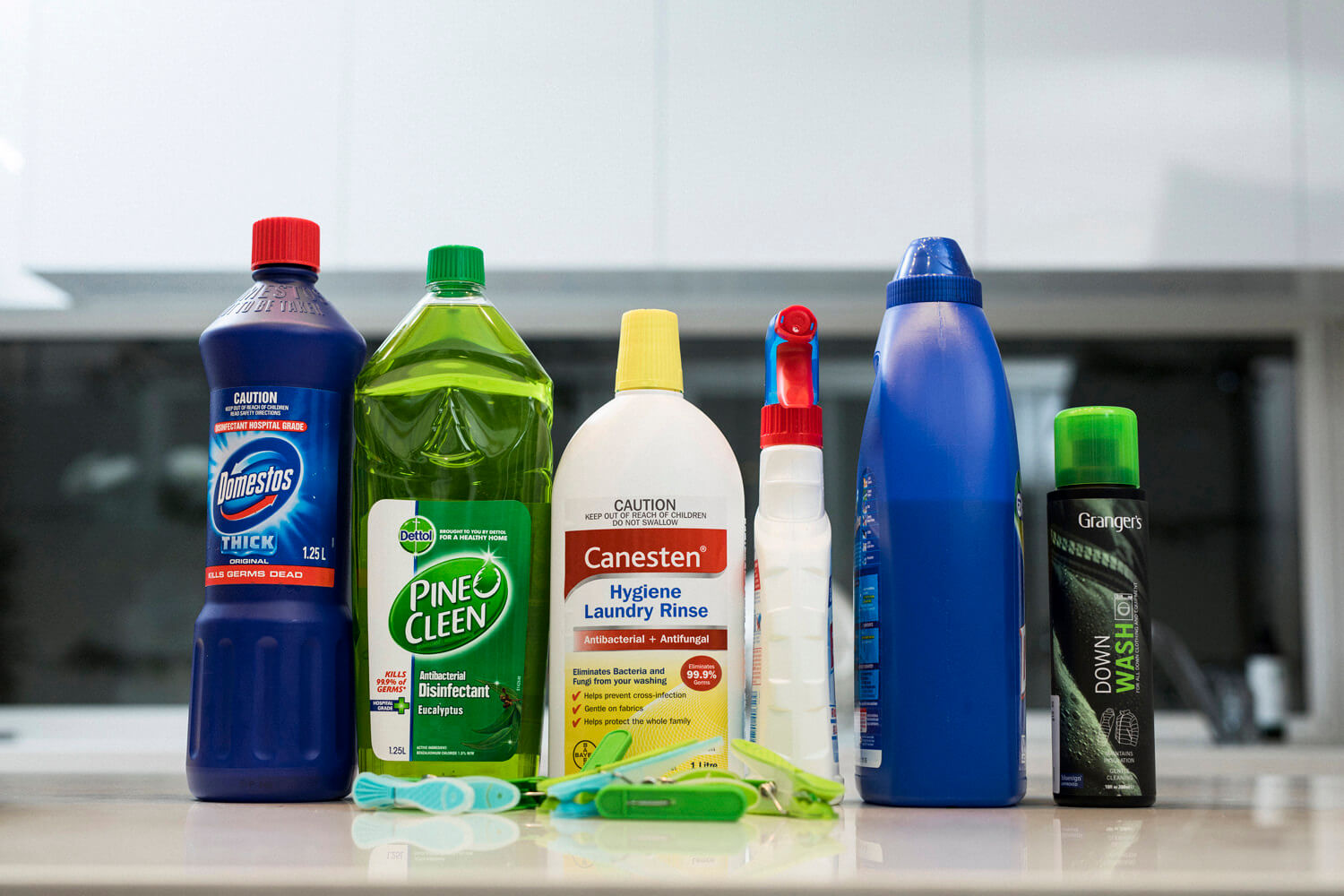What’s the big problem?
75% of Australian homes do up to five loads of washing each week.
A synthetic item it can shed more than 1,900 plastic microfibres each time it is washed.
Your laundry is likely to comprise of an array of cleaning products and white goods – all of which at some point will need disposal. In addition to this, few of us realise every load of washing we do generates thousands of plastic microfibres, many of which will make their way into our oceans causing harm to marine life.
What can you do?
- Invest in quality appliances
When purchasing laundry appliances consider the long game. Better quality washing machines and dryers typically use less water and energy to run AND will last you longer, reducing the frequency that you will need to dispose of them. - Wash items less frequently
Wash when you need to rather than out of habit - this will help you to use less water and electricity as well as fewer cleaning products. Your clothes and machine are likely to last longer too with less wear and tear! - Buy and use fewer laundry and cleaning products
Know that it's OK to use less than the recommended amount, especially with something like laundry liquid – a third or half the suggested dose often does the job just as well. Try multi-use products like the classic bicarb soda, vinegar and lemon combo, invest in some soapberries, and remember that old fashioned sunlight can remove stains and odours. Fewer items purchased means less waste in the long run. - Say goodbye to plastic pegs
Plastic pegs rarely last long under WA’s hot summer sun, instead breaking into colourful fragments that can be ingested by wildlife or thrown away. Consider swapping to hardier wooden varieties, or if your budget allows for it stainless steel ones. - Choose fewer and/or higher quality synthetic fabrics
Natural fibres such as wool, bamboo, cotton and hemp don’t release the same microplastics into the water supply when washed. Higher quality synthetic fabrics have been shown to shed fewer microplastics with each wash so, if you can, choose quality over price. - Make your own
If you feel adventurous there’s a wealth of recipes online for natural, package-free cleaning products and laundry liquid on the internet. Check out our Further Reading section for pointers on what’s out there.
